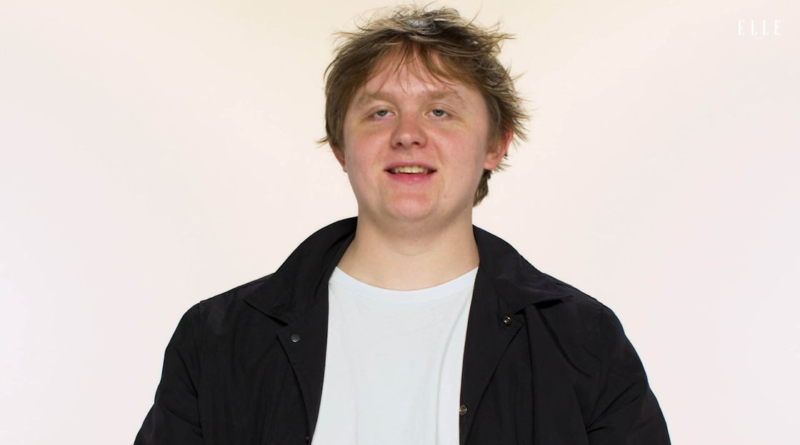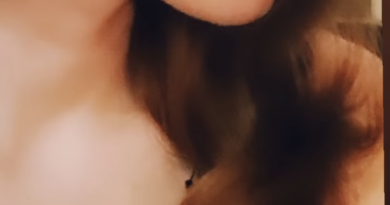Kali Uchis Is What the World Needs Now
Kali Uchis is in love.
This tracks: The 28-year-old’s music has always been seductive, or, shall we say, vibey, gliding effortlessly between soul, bossa nova, reggaeton, and groove. (Put another way, hers are the kind of songs you can imagine kids in 16 or so years learning that they were conceived to.)
You likely know “Telepatía,” even if you don’t know that you know it. The earworm has been played on Spotify more than 750,000,000 times at last count. When it bounced Bad Bunny and Jhay Cortez’s “Dákiti” from the top of Billboard’s Hot Latin Songs chart in 2021, it was the first time a song by a female soloist without an accompanying act had claimed the number one spot in nearly a decade. Uchis’ newest album, the sultry Red Moon in Venus, arrives March 3, snippets from which are guaranteed to take over your TikTok feed if they haven’t already. (“Hasta Cuando” has a spoken-word chorus about dealing with jealous rivals that’s prime material for creators to mug along to.)
More From ELLE

But back to the warm fuzzies—when we connect, Uchis has just returned from a trip to Australia with her boyfriend and occasional musical partner, rapper Don Toliver, who was touring there. “I feel like it’s a beautiful thing to travel the world with somebody you love,” Uchis tells me. “He comes on my tours, and I go on his. That’s how we figured out how to do our lives.”
This content is imported from youTube. You may be able to find the same content in another format, or you may be able to find more information, at their web site.
Born Karly-Marina Loaiza, Uchis grew up between Pereira, Colombia, and the suburbs of northern Virginia as the youngest of five children. Pop stardom was certainly not a given. “I always loved music, I always loved making things, and I knew in general that my purpose was to create,” she says, “but I never ever thought that I would be a singer.” She was a saxophonist in her high school’s jazz band. “My older brother played saxophone, so it was in the house already,” she says with a laugh. “I wanted to play violin, but my parents weren’t about to rent a whole other instrument. I ended up loving it, though.”
She also wrote poems, which she turned into lyrics, but she couldn’t imagine herself performing like the singers she now considers influences—vocal powerhouses like Sade, Amy Winehouse, Shakira, and Björk. “When I was really little, I liked attention. I was the kid who was always like, ‘Look at me—look, I’m doing this, look, look.’” And then? “Then I went through a long phase where I definitely didn’t want to be looked at.”
Uchis calls this part of her teen years her background phase, when she got into photography and cinematography and learned how to film music videos and make cover art for other people’s mixtapes. Using the money she earned, she bought a camera and laptop, and started recording songs, making beats, and sampling music to go with the visuals. Soon, music became something bigger: the first thing she did when she got home, the thing she cared about even if no one would ever get to listen to it. At 17, she was kicked out of her house and wound up living in her car and recording songs there, mixing them on GarageBand and releasing a lo-fi mixtape, 2012’s Drunken Babble. Only people did listen.
“After I shared that first project, I saw how much it resonated with people,” Uchis says. “When you see that you can actually make a difference in people’s lives by sharing your art, that’s what encouraged me to keep going.” Collaborations with Snoop Dogg and with Bootsy Collins and Tyler, the Creator followed. As did a 2021 Grammy for Best Dance Recording that she shares with Kaytranada (not to mention rumors of a possible future collab with Ariana Grande).
And here we are, nearly 2.5 billion streams later. Not that she’s counting. “Music is one of my purposes for sure, but it’s more so just what helps me feel connected to God, what helps me feel connected to myself,” she says. “I think that when you become too consumed by how to use your God-given gifts for capitalism—and that becomes your main priority, charting or selling or whatever—I think that you can get lost really easily that way.”
This has meant trusting her instincts on everything from rejecting easy-money gigs writing songs for other artists to singing in Spanish, even when the audience didn’t seem to be with her quite yet: “When I would start performing songs or doing covers in Spanish—at least in all the places I was performing—it was always kind of a weird vibe,” Uchis recalls of her early festival circuit. Luckily, these days, American audiences are primed for everything from K-pop bangers to Latin love songs, as long as they’re good, and Uchis’ music does not miss. “That’s a really beautiful thing for me—when fans tell me, like, ‘Oh my gosh, I get a serotonin boost when I listen to your music, like immediately charged in a positive way.’ ” That’s the goal.
Uchis and Toliver make music together often, including a track on Red Moon in Venus. They met through a mutual friend in Houston, started dating, and never really stopped, going public with their relationship in 2021 after they collaborated on his song “Drugs N Hella Melodies.” (In one part of the music video, she is perched on the side of a candlelit cotton-candy-pink bubble bath in embroidered lingerie and a sheer peignoir, her hair a romantic tangle of pinned-up barrel curls. She eventually joins Toliver under the suds in a scene that looks ripped from, well, a bodice ripper.)
Uchis says that music provides them with “a whole different way to connect—we just get on a microphone and bounce melodies off each other. And we love listening to music together. That was one of the first ways we really bonded: We just showed each other a bunch of music. We have pretty much the same tastes, so it comes naturally.” She can’t envision music playing anything less than a central role in her life. “I could never date somebody who doesn’t have the same [tastes in] music as me,” she says. “That would be awkward—a guy into, like, the most ass music ever. You would have to ask him to pull over and drop you off on the curb.”
This content is imported from youTube. You may be able to find the same content in another format, or you may be able to find more information, at their web site.
Lately, Uchis’ Instagram Stories are peppered with scenes of domestic bliss—decorated Christmas trees, carefully cropped interiors—with captions about how the holidays make her excited to start her own family. That definitely wasn’t always the case. “I’d always thought, since I was little, that I never wanted to have kids, I never wanted to get married. Because I’d never seen in my family anybody really having a happy marriage, or a happy relationship, or a happy family.” Now that she’s an adult, she wants a do-over. “That’s one of my biggest dreams, to be able to have my own happy family. It’s about wanting to give your kids everything, to let them see a happy relationship, and let them see their parents be in love and just have a loving home environment.”
Did we mention her new album is all about love?
“When you go to the root of how people use music, it’s something we use to connect to each other,” she says. “It’s something people use to lift the frequencies around them. I’ve mostly made really chill music, because life around me was very chaotic when I was young,” Uchis says. These days, she says, a lot of popular music is “toxic, and about toxic topics”—decidedly not the Red Moon in Venus vibe. “I wanted to make music that was more geared toward love—real love,” she says, “so that’s the main mission: just love being the message in its truest form, and letting go of all of that toxic stuff that is very much the norm in today’s society.” Someday, she hopes this will be her legacy. “I want people to take away from my life that I never compromised, that I was my truest self, and that my contribution to the world was love.”
This article appears in the March 2023 issue of ELLE.
Alessandra Codinha is a writer living in Los Angeles. She was previously the style director of Departures magazine, before which for many years she was the online culture editor and a fashion news editor for Vogue. Her writing has appeared in Harpers Bazaar, HommeGirls, L’Officiel, WWD, Town & Country, and other publications.







